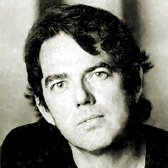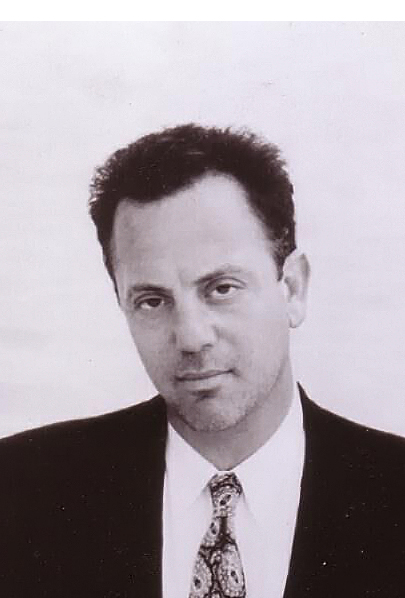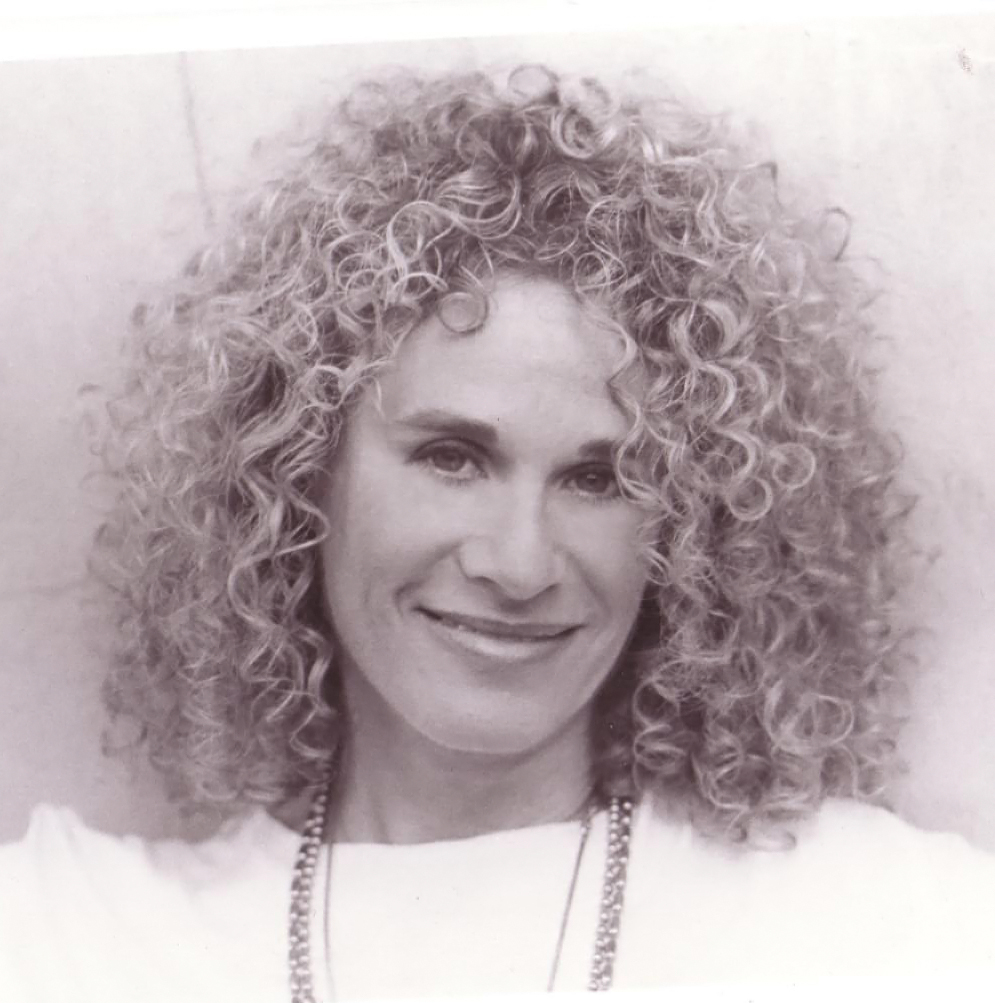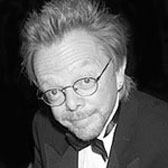
Towering composer and brillant lyricist forged unforgettable American classics
Jimmy Webb
InducteeGrammy for his "Up, Up and Away"
* Jimmy Webb was also the 2003 recipient of The Johnny Mercer Award, the SHOF’s highest honor
Songwriters Hall of Fame Chairman Emeritus, 2010-2014
"Jimmy Webb is one of the only contemporary songwriters who can write songs right into the orchestra, and his songs have 17-layer emotions and sophisticated chord charges that are absolutely dazzling," says singer Linda Ronstadt, who pays musical tribute to Webb by performing many of his songs back-to-back in her concerts.
Ronstadt is certainly not alone in her recognition of the extraordinary talent of this Oklahoma-born son of a preacher. Indeed, the critical acclaim composer Jimmy Webb has received during his almost thirty years of success is as remarkable as the accomplishments they honor: Webb is the only artist to ever receive Grammy awards for music, lyrics, and orchestration. He is a member of the Songwriters Hall of Fame, the Nashville Songwriter's Hall of Fame, and, according to BMI, his "By The Time I Get To Phoenix;" has been the third most performed song in the last fifty years, with "Up, Up And Away" on the same list in the top thirty. Webb's, "Wichita Lineman" has been listed in MOJO Magazine's worldwide survey of the best one hundred singles of all time in the top fifty. The National Academy of Songwriters also name Jimmy as 1993's recipient of their Lifetime Achievement Award, although TIME Magazine was early to acknowledge Jimmy Webb's range and proficiency back in 1968.
Though best known for the instant classics he provided for such artists as Glen Campbell ("By The Time I Get To Phoenix," "Wichita Lineman," "Galveston," "Where's The Playground, Susie"), Richard Harris (" MacArthur Park," "Didn't We"), the Fifth Dimension ("Up, Up and Away," "This Is Your Life"), The Brooklyn Bridge ("Worst That Could Happen"), Art Garfunkel ("All I Know"), Linda Ronstadt ("Easy For You To Say"), Joe Cocker ("The Moon's A Harsh Mistress") and so on, Jimmy Webb continues to write songs that are as carefully crafted and magical as the older ones. Waylon Jennings, Willie Nelson, Johnny Cash, and Kris Kristofferson hit #1 in the late eighties with a new Webb standard, "The Highwayman," a ballad which won him yet another Grammy for Best Country Song of the Year, and a CMA Award for Single Of The Year. Webb's own version of the song, one of several he performed at 1992's Farm Aid V, was, according to Kristofferson, so "awesome," that he invited Jimmy to join the group in another rendition of it several hours later. Linda Ronstadt, who has recorded a multitude of his songs throughout her recording career, included four of his efforts on her double platinum album, "Cry Like A Rainstorm, Howl Like The Wind," and scored a top ten in 1990 with her rendition of Webb's "Adios." With a discography that reads like a "Who's Who" in the music world, Webb's songs continue to grace a multitude of major recording artists' albums, from Tony Bennett and Rosemary Clooney, to Urge Overkill and R.E.M..
Having five top ten hits within a 20-month period, Jimmy Webb concluded the 1960's with an international name that was bandied around on the musical air currents as a "new genius." In a natural extension of his work, Webb began the Seventies intent on launching his own performing career, releasing six albums in eleven years, including Words and Mu sic (1970), And So: On (1971), Land's End (1974), El Miraga (1977), and Angel Heart (1982), while writing hits for other recording stars. Throughout the years, he continued to hone his performance skills, and earned distinguished reviews and praise following his appearances in top cabaret venues (such as the Algonquin's famed Oak Room in New York, San Francisco's Fairmont Hotel, Melbourne's Continental, The National Hall in Dublin, Pizza on the Park in London as well as London's Cafe Royal) as he presented material which encompassed a new maturity and sophistication for his first album in over a decade. Suspending Disbelief, (1993) produced by Linda Ronstadt and George Massenburg, received enormous critical acclaim, and led New York Times critic Stephen Holden to state that this album, "may very well be the songwriter's perfect moment." His last recording effort, Ten Easy Pieces, (Guardian-EMI)-which won rave reviews-was a collection of the songwriter's hits as he performs them the way they were originally written, and he is embarking on a continuation of those recordings, "More Pieces," due in September of 2000. Webb was also one of the few artists asked to perform in 1995 at Carnegie Hall's "Celebration of American Music" honoring Frank Sinatra, and, at Billy Joel's personal request, one of several artists (including Marvin Hamlisch and Garth Brooks) asked to perform for Congress in 1997 as Joel was presented with ASCAP's Founder's Award. Jimmy Webb's recent tours (New Zealand/Australia '99 and The U.K. Tours `98 & '99) were complete sell-outs.
Tremendously influenced as a boy by "West Side Story," the 1980's coincidentally brought Webb in contact with Michael Bennett, and thus began a collaboration between the two on projects for the musical theatre, among them, "A Children's Crusade," and the innovative, though controversial "Scandal." Although the realization of their work was halted by Bennett's untimely death in 1987, Webb moved forward with other theatrical endeavors, including a musical version of "A Bronx Tale" with writer/actor Chazz Palminteri. His show, "Instant Intimacy," developed with the Tennessee Repertory Theatre won a 1994 grant from the National Endowment For The Arts for "New American Musical" and is currently getting ready for its first New York reading.
Jimmy Webb has also added his inimitable genius to a number of film and television projects. Beginning his scoring career in 1968, he wrote the title song and a mid-summer knit ("Montage") for the James Garner-Debbie Reynolds comedy, "How Sweet It Is!," followed by an adventurous score for the 1971 classic Western, "Doc." In 1973 he demonstrated his wit, humor and musical breadth with a score for the provocative "Naked Ape," followed by his music for "Voices," which was warmly received in 1979. Webb provided a dazzling score for the highly successful animated film, "The Last Unicorn," Germany's second-highest grossing film in 1982, which also included his title song, "That's All I've Got To Say," later recorded by Art Garfunkel. That success was followed by the score for Cannon Film's Vietnam sage, "The Hanoi Hilton." Although he rarely collaborates, Webb and Carly Simon wrote the title track of her latest album ("Film Noir") which was released September 16th of this year and completed "A Dream Worth Keeping," with Alan Silvestri for Twentieth Century's 1992 release, "Fern Gully: The Last Rainforest," recorded by Sheena Euston. His solo effort, "Christmas Will Return" was included in Disney's '94 smash hit, "The Santa Clause." Now contemplating commitments for future film projects, Jimmy Webb continues in his reign as one of the few masters of American music, leading one reviewer to comment, "There is something of a return to 1930's glamour in Webb's work, a suggestion of the great era of lush film scoring when velvet-sounding violins appeared seemingly out of nowhere and emotion erupted from the music itself."
Webb's earlier television projects included the theme music and songs for specials with Ringo Starr, Olivia Newton-John, and Amy Grant, in addition to providing the theme songs and music for Rolling Stone Magazine's Tenth Anniversary Special. He has also scored for Steven Spielberg's "Amazing Stories," Shelley Duvall's "Faerie Tale Theatre," MGM Television's "Seven Brides For Seven Brothers," and the television series "E/R." Columbia Records released a Jimmy Webb cantata, "The Animals' Christmas," featuring Amy Grant, Art Garfunkel, and the London Symphony Orchestra, with songs from the album featured on Grant's Christmas Special in 1986. Webb also scored the 1991 premiere episode of HBO's "Tales From The Crypt," as well as another episode of 'Tales for the 1992 season.
Clarifying himself as a romanticist, Webb's use of vivid imagery simultaneously captures and involves his listeners' emotions, which should come as no surprise to the songwriter who state's, "I like words. I like the way they clash around together and bang up against each other, especially in songs." In a progression of his celebrated talent as a lyricist, Webb continued in the 1990's furthering his enormous range of interests by completing a best-selling book, "Tunesmith: Inside The Art of Songwriting," (a Hyperion '98 release, which was released in soft-cover in the fall of `99) considered by many to be the "Bible of songwriting." Warner's, United Kingdom, released Archive (1993), featuring twenty tracks from earlier Webb recordings and PolyGram U.K. released Someone Left The Cake Out In The Rain, (I998) a compilation of the greatest Webb covers in January 1998-although Webb has also been trying to devote some infrequent spare time towards his love of building model ships. He also co-produced Carly Simon's "Film Noir" album and also contributed his vocals, orchestration and piano shills to the project which was filmed for an AMC documentary which premiered in September of '97. He also accompanied Ms. Simon on her promotional appearances appearing on NBC's "The Tonight Show," "CBS's Late Show With David Letterman," and ABC's "The Rosie O'Donnell Show." His recording efforts with Glen Campbell have just been reissued and extended on a Raven-import album entitled Reunited (2000).
Jimmy Webb's accomplishments as a composer, arranger, and producer demonstrate beyond question that he remains as important and vital a cultural figure today as he was over thirty years ago. Embraced by his peers, Webb has influenced and affected some of the finest musical talents of our time. Frank Sinatra declared "By The Time I Get To Phoenix" as "the greatest torch song ever written," and says he enjoys singing Jimmy Webb tunes because "he has been blessed with the emotions and artistic talents of the great lyricists." The late Sammy Cahn commented, "I think one of the real, real geniuses is Jimmy Webb. His "MacArthur Park" is a major piece of work, major. I'd almost compare it to Gershwin's "Rhapsody in Blue" in size and scope." Singer Michael Feinstein, who recorded Webb's "Time Enough For Love," for his 1993 album, "Forever," and included another Webb track ("Wasn't There A Moment") on "Such Sweet Sorrow," his first album for Atlantic, says he's "interested in the work of the great masters from any era, and certainly, Jimmy Webb is a master of this era, of today." Feinstein also plans to record an "all-Webb" album as does Kenny Rankin for the near future, and Webb himself will be doing another solo album to be released in Fall, 2000. Billy Joel credits Jimmy as a major influence on his own foray into the music business. "When I was starting out as a songwriter," says Joel, "I looked to Jimmy Webb as one of the most innovative and musically proficient songwriters of our generation." His songs transcend their precedent-setting critical and commercial acclaim to achieve the level of true classics-a permanent part of the American landscape, the soundtrack of an era. In his book about songwriting, Webb states, "The paramount joy of the craft is that, however simply it is begun, it can take the songwriter on a lifelong voyage across many distant and wondrous musical seas." For Jimmy Webb, that's a spectacular series of events indeed.




